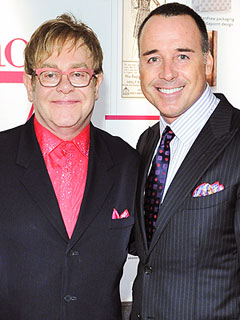TOKYO (Reuters) - Asian shares fell on Thursday, erasing earlier gains amid worries about the global growth outlook as investors remained cautious ahead of Chinese data on Friday.
The MSCI's broadest index of Asia-Pacific shares outside Japan <.miapj0000pus> fell 0.2 percent, extending declines for a third consecutive session, led by a slump in Chinese shares. The index's financial sector <.miapjfn00pus> was down 0.2 percent despite robust earnings reports overnight from Goldman Sachs
The Shanghai Composite Index <.ssec> slid 1 percent, retreating further from a 7-1/2-month high and wiping earlier gains in Hong Kong <.hsi> which fell 0.1 percent.
Shares of Japanese suppliers of Dreamliner declined after U.S. regulators said it would temporarily ground Boeing Co's
GS Yuasa Corp , which makes the batteries for Boeing's new 787 Dreamliner, tumbled 5 percent while Mitsubishi Heavy Industries Ltd , which makes the wings, dropped 0.6 percent.
Growth-sensitive sectors dented Hong Kong shares ahead of a slew of key Chinese economic data including fourth-quarter GDP, December industrial output, retail sales and house price, which will offer clues on the health of Asia's biggest economy.
"I think people are still just taking profit from the out-sized jump in the A-share market earlier this week," said Hong Hao, chief equity strategist at Bank of Communication International Securities, referring to onshore Chinese shares where foreign investors have limited access.
"We are early in this rotation into cyclicals at the start of a new economic cycle in China, so some are still operating as in a bear market, selling into strength and clocking profits by rotating swiftly between sectors," Hong added.
Australian shares <.axjo> bucked the general bear trend and added 0.4 percent to a 20-month closing high, after data showing an unexpected fall in Australian employment in December raised the chances for another interest rate cut. The prospect of further policy easing sent the Australian dollar down to session lows of $1.0494 from $1.0560 before the data.
Investor concerns about the global economy flared again after the World Bank on Wednesday sharply cut its outlook for world growth this year.
European markets are seen easing, with financial spread-betters predicting London's FTSE 100 <.ftse>, Paris's CAC-40 <.fchi> and Frankfurt's DAX <.gdaxi> would open down as much as 0.2 percent. A 0.1 percent fall in U.S. stock futures hinted at a weak start on Wall Street. <.l><.eu><.n/>
YEN NERVOUS BEFORE BOJ
The dollar and the euro were choppy, as both currencies pared back some of their recent outsized gains against the yen after a Japanese official this week expressed concerns about excessive yen weakness.
The yen is expected to remain on a weakening trend amid expectations for bolder BOJ monetary easing measures as part of the new government's push to drive Japan out of years of deflation and economic slump.
But markets were nervous about their short yen positions ahead of the Bank of Japan's January 21-22 policy meeting, with traders expecting the BOJ to adopt a 2 percent inflation target next week. Some market players say there could be selling in dollar/yen afterwards, based on "buy the rumor, sell the fact."
"The BOJ will probably disappoint to some degree. They'll deliver what the market expects but no more than that," said Gareth Berry, G10 FX strategist for UBS in Singapore.
Japan's benchmark Nikkei average <.n225> closed up 0.1 percent, after tumbling 2.6 percent for its largest daily decline in eight months on Wednesday. <.t/>
The dollar rose 0.4 percent to 88.71 yen, off its peak since June 2010 of 89.67 touched on Monday, while the euro gained 0.4 percent to 117.95 yen, after surging to its highest since May 2011 of 120.13 yen on Monday.
COMMODITIES SEEN RISING
While investor concerns remain about the global economy, the relatively better risk environment is seen benefiting commodities, but instability in the Middle East and Africa and tensions between Japan and China could undermine sentiment.
"Investment focus for 2013 is shifting to economically sensitive areas as global recovery takes place, boosting commodities prices," said Naohiro Niimura, a partner at research and consulting firm Market Risk Advisory.
The rally in platinum to 3-month highs this week, regaining its premium over gold for the first time since March 2012, is an indication of risk positive tone, he said.
Brent futures slipped on Thursday as signs of a weakening global economic outlook revived demand worries, but the contract stayed above $109 a barrel on supply concerns after Islamist militants attacked an Algerian gas field.
(Additional reporting by Clement Tan in Hong Kong and Masayuki Kitano in Singapore; Editing by Shri Navaratnam)









